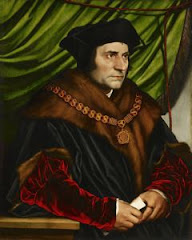As I was preparing to leave for a vigorous workout on an early summer morn last year, I recall watching one of the most absurd news stories unfold. Listening to the incoherent news reports, I learned that the impetuous Paris Hilton had neglected to appear for a scheduled court date, drawing the ire of a California judge. The police had been sent to bring the young lady to court, inciting a prodigious dispatch of reporters, fans, critics, paparazzi, and dog-lovers to the palatial Hilton residence. I gave it a passing chuckle and went about my day.
When I returned about two hours later, to my surprise the same stations were still covering the same story. And it didn’t stop there; all of the major news networks carried this story for what seemed like endless hours. I was quite surprised that anyone had the time (much less the desire) to watch something so insipid unfold. I suppose I wrote it off at the time to media sensationalism or American consumerism, without realising the implications thereof. Two years later, however, this seemingly random event is still relevant. The people who laughed, cried, cheered, yelled, and gossiped for weeks about Paris Hilton are the same people who will elect the next president of the United States.
Given this, it’s not surprising that we have someone like Barack Obama has so firmly grasped the American psyche. A person as smart as Mr. Obama surely knows the way to the hearts of Americans – sensationalism, or as our Roman forebears may have said,
pan et circenses. He stirs people’s souls with speeches about hope, and promises them copious amounts of change, because God knows the Republicans stand for misery and ignorant obduracy.
With a few empty platitudes, well-formed slogans, and gaudy speeches, Barack Obama managed to capture (or hypnotise) the mob. From an outsider’s perspective, it’s almost hysterical, if not for the fact that the stakes are so high, and this candidate loves his country about as much as John Walker Lindh. We may not even know who this person is (see the controversy about his birth certificate). Take meetings with domestic terrorists in the 1970s, throw in some of Rev. Wright's racism, hatred, and militant anti-Americanism, plus links to Kenyan terrorists. Do I need to draw you a picture?
Besides being a closet socialist (look at his economic policies), he refused to extend protection to infants born after failed abortions (read up on the Born Alive Act), and the scary thing is that no one is talking about it. He also seems to like poking fun at sacrosanct American institutions, the presidency no exception (like when he altered the presidential seal to use for his campaign). Obama relies on the slogan, “Yes, we can,” or “Possumus.” But I say, “Non, Possumus.” Some of us can see through the platitudes and the lies and the sophistry, and no, we can realise when the presidency is about to fall into such conniving hands.
Not only has Mr. Obama mesmerised Americans with his casuistries, but he has had the gall to thumb his nose at them too, because he knows as well as I that they will not pick up on it. But who can blame him, it is not difficult for a smart person like Mr. Obama to figure out how to sway the masses when the masses are more interested in the next celebrity adoption rather than an economic crisis or the right to life. Who can blame Mr. Obama if he tricks his way into the presidency – the American people let him.


